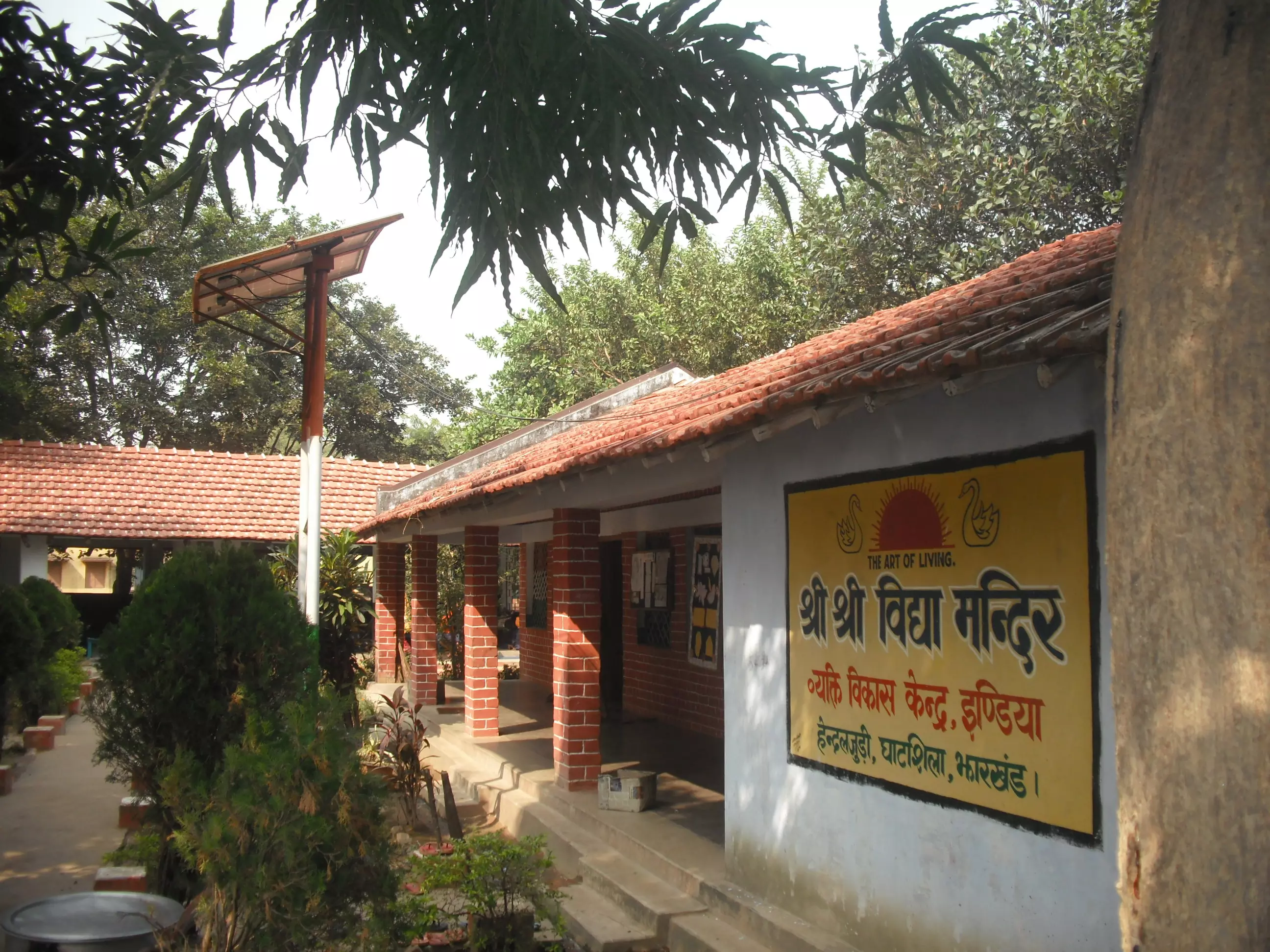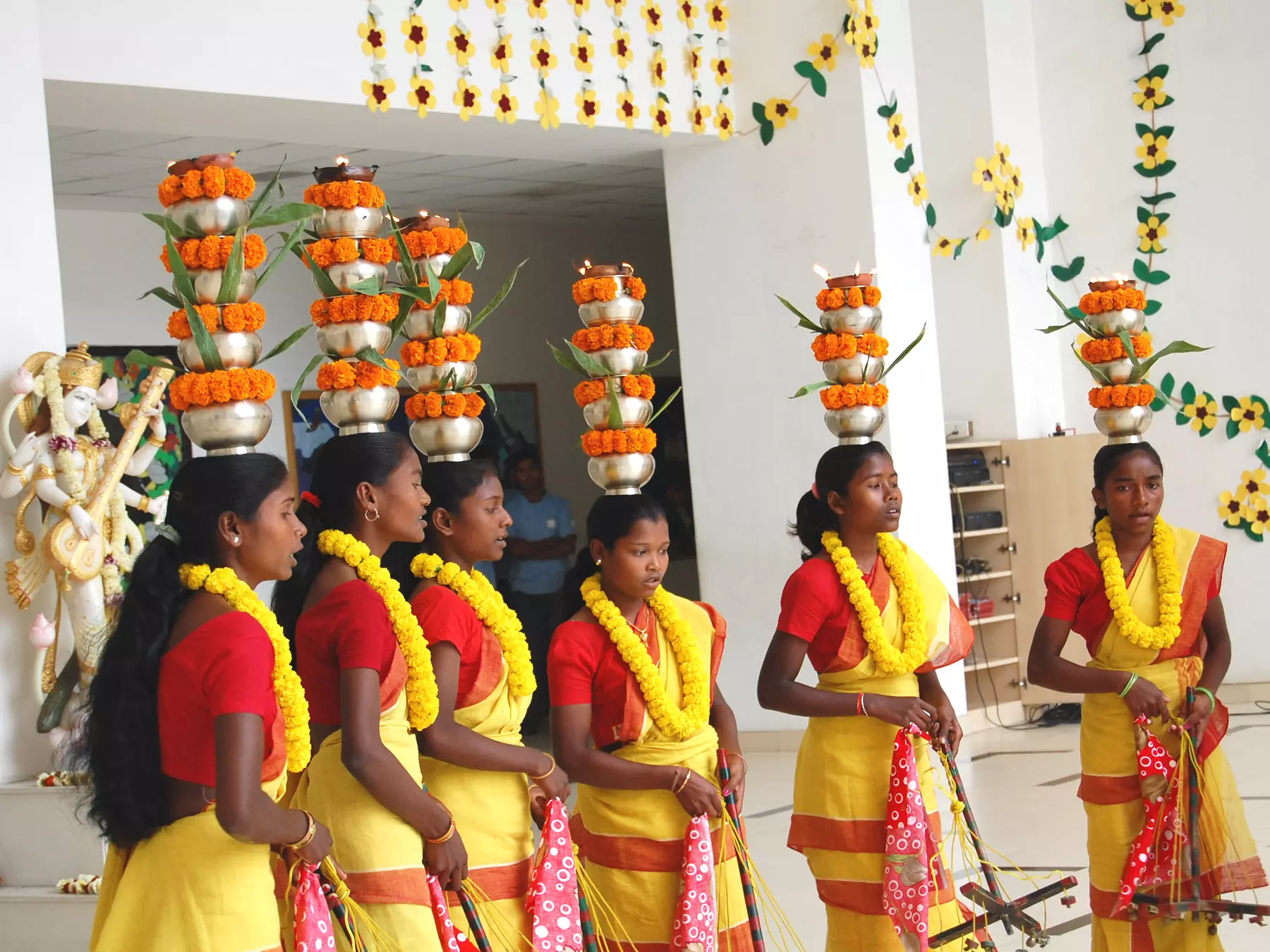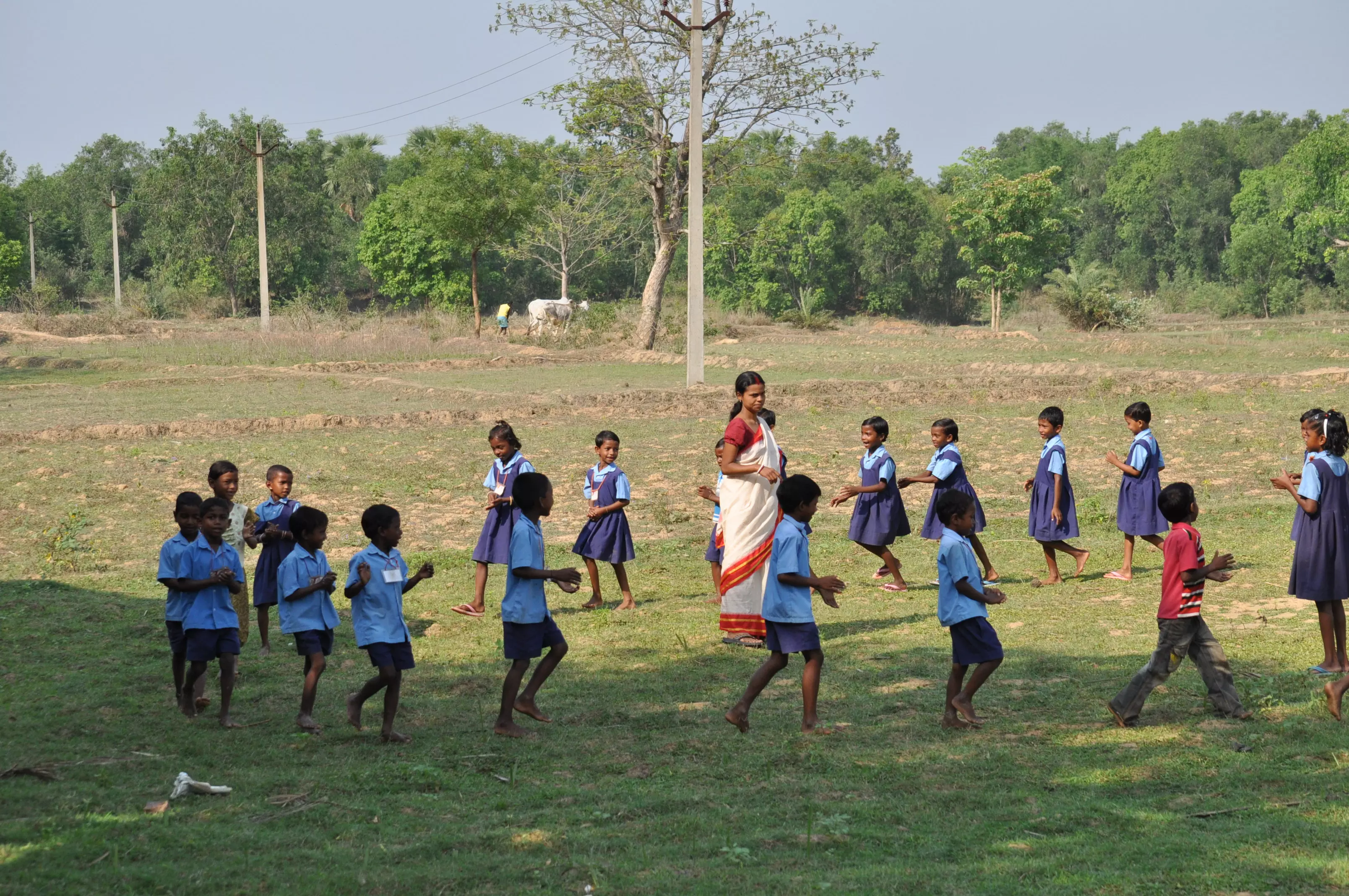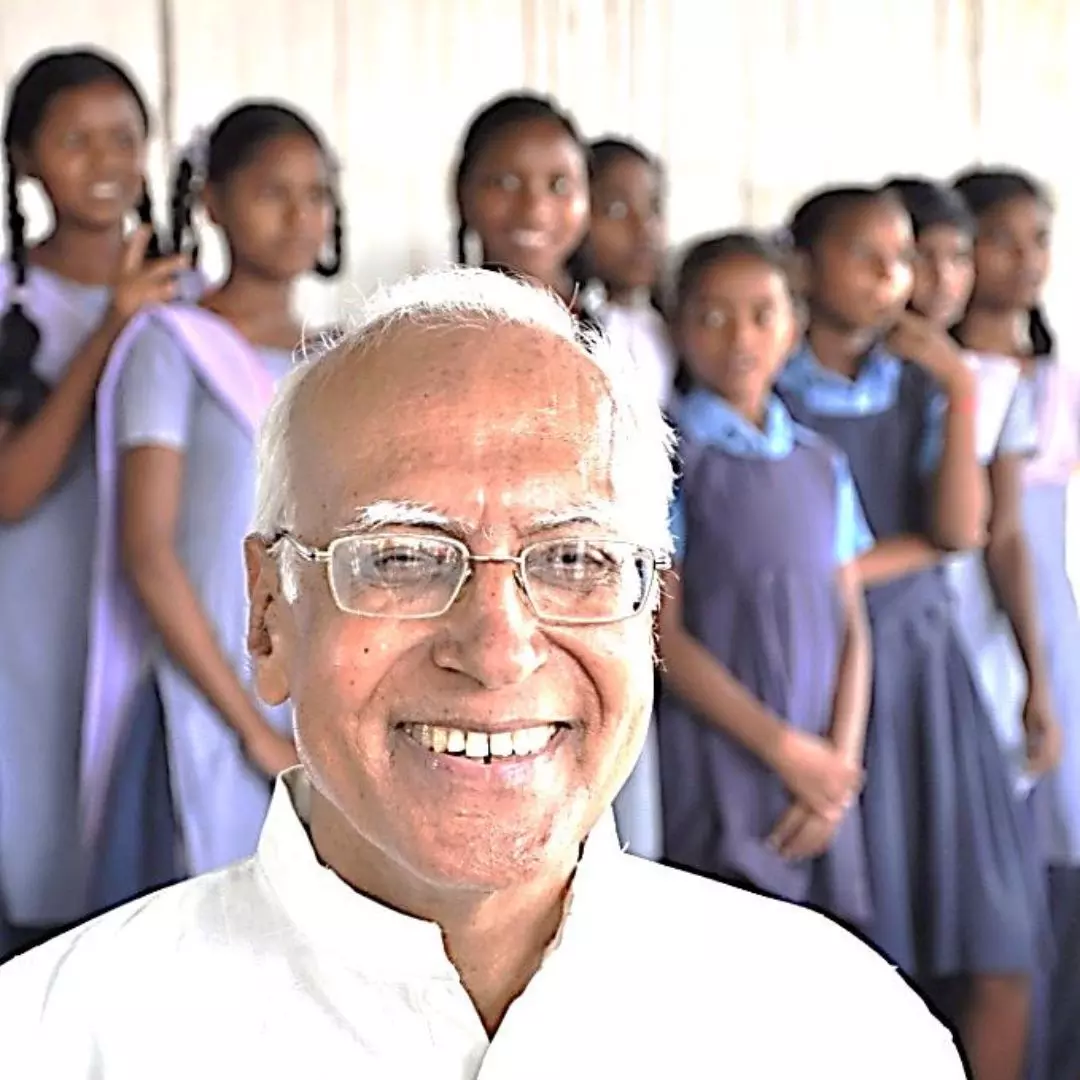In the heart of Jharkhand, an 80-year-old retired engineer is rewriting the narrative of tribal education. Brij Chawla, fueled by a deep sense of service, has embarked on a remarkable journey, establishing 18 free tribal schools under The Art of Living’s unique learning model. These schools are not just centers of academic excellence; they are sanctuaries of empowerment for first-generation learners in 60 villages, who only began their tryst with education in the late ’90s.
Chawla’s schools, nestled in the tribal belts of Jharkhand, defy expectations. The 5400 first-generation learners in these 19 schools are not only mastering chaste English and Mundari but are also excelling in archery and Yoga. Chawla’s innovative approach integrates modern education with tribal roots, creating a harmonious blend that is transforming lives.

A school established by Brij Chawla
The success stories are a testament to the impact of this education model. Students like Sunanda, from Sri Sri Vidya Mandir in Ghatsila, proudly boast of academic achievements, with an 84% score in her recent board exams. Across 22 states, The Art of Living’s Free Schools, spearheaded by Chawla, provide free, value-based, and holistic education to over 100,000 children.
The initiative in a way has also motivated present students to spread the light of education among the students in the future as well. The school is Chandan’s second home. A class IX student of Hindoljuri Middle School, Chandan shares with The Logical Indian, “Not only has the school provided the education to my three younger sisters and myself, it has also housed and clothed us when our parents passed away.” Chandan aspires to spread the light of education in tribal areas when he grows up.

A cluster of students showcasing a cultural and traditional performance within the school grounds.
Chawla faced numerous challenges in kickstarting this education revolution. Operating in regions affected by naxalism and economic deprivation, he encountered resistance from parents initially uninterested in sending their children to school due to practical concerns. Despite these hurdles, Chawla, with a heart condition and unwavering determination, spearheaded efforts to build infrastructure, bring electricity, and provide healthcare to these remote villages.
A key factor in the success of these schools is the involvement of women in the community. Recognizing that men were often unavailable, Chawla engaged women, resulting in a higher enrollment of girls than boys. The emphasis on local teachers further strengthens the connection to tribal ethos, with a fun-based teacher training program introduced to make learning enjoyable.
The curriculum in Chawla’s schools goes beyond textbooks, incorporating tribal cultures, languages, and practices alongside a human values-based approach. Subjects like science and math are taught through real-life examples, and students learn their native languages along with mainstream languages, fostering effective communication skills.

Pupils participate in an enjoyable activity under the guidance of a teacher.
While sharing the importance of native languages and communication skills, Brij Chawla told The Logical Indian, “Students learn their native languages of Mundari, Oraon, along with the script Akik. “Mastery over linguistics, semantics, vocabulary and grammar in one of these languages opens the door for learning effective communication for these children and grasping other languages like Hindi and English becomes comparatively easier.”
Chawla’s vision extends beyond traditional education. Yoga, meditation, sports, and vocational training are integral components, ensuring students develop into well-rounded individuals with a focus on hygiene, cultural preservation, non-violence, and environmental consciousness. Brij Chawla’s dedication to transforming tribal education is a beacon of hope for marginalized communities. His visionary approach, coupled with The Art of Living’s commitment, has not only bridged educational gaps but also empowered generations in Jharkhand. As Chawla rightly emphasizes, a school should be a place for uninhibited child development, and in these tribal areas, it is indeed becoming a reality.











